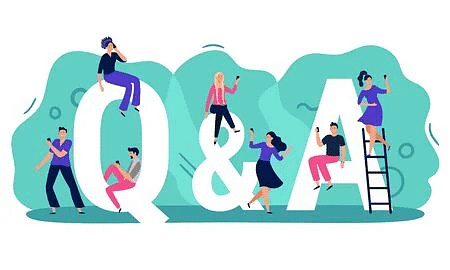Class 6 Civics Chapter 3 Question Answers - What is Government?
All the questions are from the NCERT lines and each question is answered according to the NCERT only.

Q1: What do you mean by social equality?
Ans: It ensures that people belonging to lower caste have access to temples, jobs and basic necessities like water.
Q2: Dalits remain the most vulnerable, marginalized and brutalised community in the country. True/False
Ans: True
Q3: The elected representatives make decisions for the __________.
Ans: People
Q4: The traditional practice of untouchability is banned by ______.
Ans: law
Q5: India is a _______ state.
Ans: Secular
Q6: All person are equal before law. True/False
Ans: True
Q7: Name the river on which Krishnasagar dam and Mettur dam are situated.
Ans: Cauvery River
Q8: Name the first English newspaper in India.
Ans: Bengal Gazette
Q9: Name the state that enjoys the monarchical rule.
Ans: Saudi Arabia
Q10: Election is an inevitable process of______________.
Ans: Democracy
Q11: Name the party whose leader was Nelson Mandela.
Ans: African National Congress
Q12: Name the place where Nelson Mandela was born.
Ans: South Africa
Q13: Name the social reformer who stressed upon education for girl child.
Ans: Ishwar Chandra Vidyasagar
Q14: How do People participate in the government decisions?
Ans: By taking interest in the government policies and by criticising it when required
Q15: How do people show their disapproval against government decision?
Ans: through rallies, demonstrations and signature campaign.
Q16: Name the person who fought against untouchability.
Ans: Dr. B.R. Ambedkar
Q17: Every child should get free education is regarded as equality of ____________.
Ans: Opportunity
Q18: What was ‘Soweto’?
Ans: Black township
Q19: People show disapproval against the decisions of the government by direct confrontation with the government. True/False
Ans: False
Q20: What do you mean by ‘Apartheid’?
Ans: Separation on the basis of race and colour.
Q21: Non-whites were not allowed to ___________ in South Africa.
Ans: Vote
Q22: Does laws of the government can directly lead to conflicts in the society?
Ans: No
Q23: Which river is the cause of dispute between Karnataka and Tamil Nadu?
Ans: Cauvery
Q24: State the main aim of a democratic government?
Ans: Commitment to equality and justice
Q25: In a democratic government, the powers of the government are controlled by the ___________.
Ans: Constitution.
Q26: The constitution sets certain limits on what a government can impose on its citizens. True/False
Ans: True
Q27: Name the term used for Dalits in Indian Society.
Ans: untouchables.
Q28: Adivasis” belong to ________ community.
Ans: Minority
Q29: Who are called as minorities?
Ans: The minority status is given to those communities that are socially and economically backward and are also less in numbers. Adivasis is one of them.
Q30: What is “Zulu”?
Ans: Language of South Africa
Q31: Who is the head of the “Indian Union”?
Ans: President
Q32: What are the various ways through which people participate in the process of government?
Ans: Voting in the election, taking an interest in the working of the government, expressing their views through dharnas, rallies, strikes and signature campaigns etc.
Q33: What is the name of The ‘Council of States’ in India?
Ans: Rajya Sabha
Q34: Differentiate between the ambulance meant for the ‘white and the black’ people?
Ans: Ambulance for white people was well equipped
Q35: What is the profession of Indians in South Africa?
Ans: Labourers and traders
Q36: Why it is important for the government to implement laws for protecting tigers?
Ans: If the law is not regulated, tiger will become an extinct animal.
Q37: What is ‘African National Congress’ in South Africa?
Ans: A group of people who led the struggle against apartheid
Q38: Constitution is a _______ document.
Ans: Legal
Q39: When one sees violating the law, one immediately tries to inform the government. True/False
Ans: False
Q40: Name the highest court of appeal in India.
Ans: Supreme Court
FAQs on Class 6 Civics Chapter 3 Question Answers - What is Government?
| 1. What is the definition of government? |  |
| 2. What are the main functions of government? |  |
| 3. What are the different types of government? |  |
| 4. How does government impact daily life? |  |
| 5. Why is government important for society? |  |






















